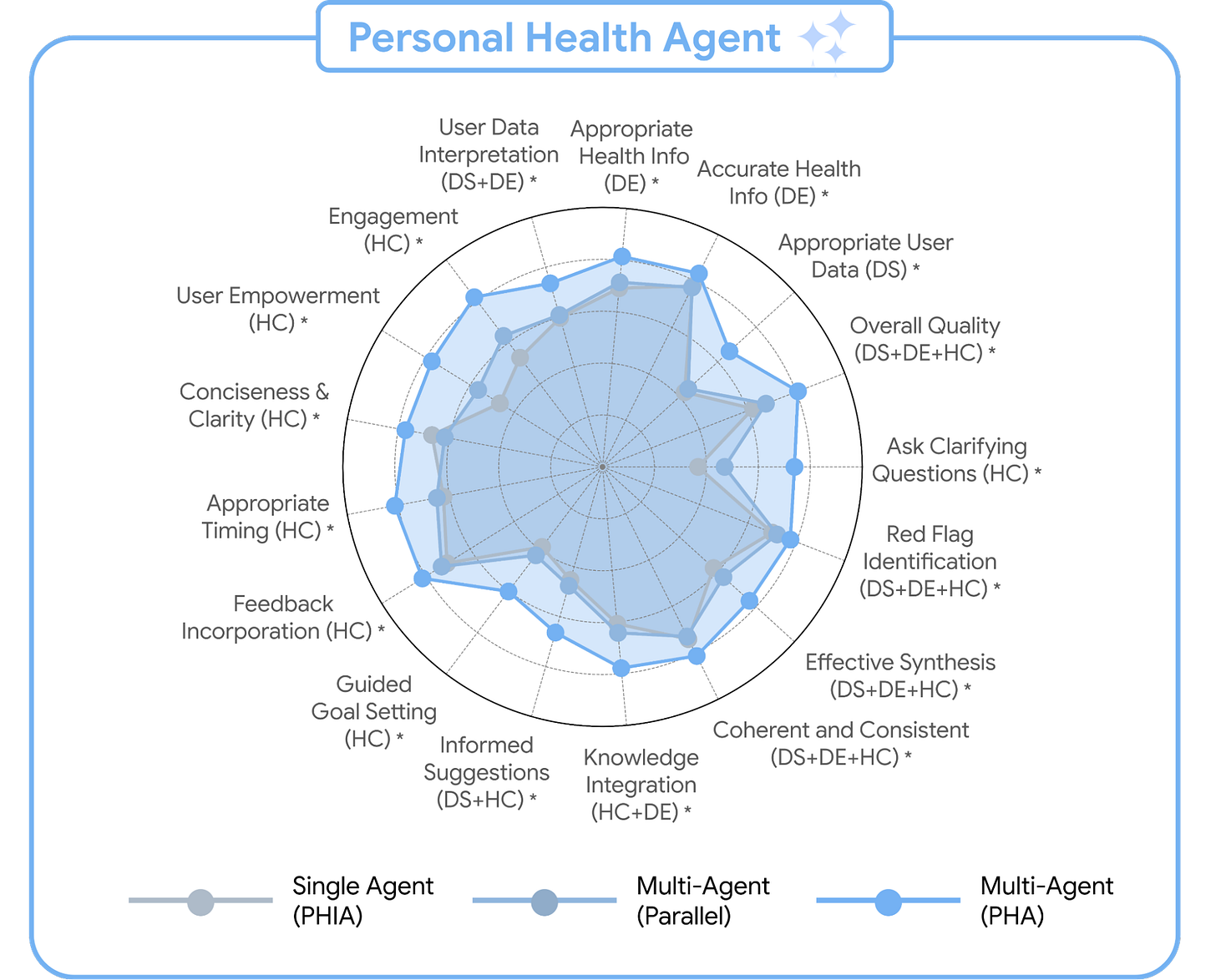Four For Friday | Oct 10, 2025
LF191 | The economy we could have, AI as faster horses, Google's agentic health, inflammation over lipids + go Granola.
Welcome to this week’s Four For Friday - nuggets of interesting things I’ve picked up this week, plus my favorite AI tool du jour. Enjoy!
1. The economy we could have
A new report on Australia by The Next Economy is relevant to all Western nations dealing with a disconnect between headline economics and lived experiences. Essentially, our economic engine is failing the majority of people. One in seven Australians lives in poverty, facing precarious work and unaffordable housing. Suicide risk doubles in poorer areas.
This isn’t accidental - the system has shifted from fair wages and public investment toward asset concentration and individualised risk. Yet alternatives are emerging: worker cooperatives, community energy projects, and government frameworks measuring wellbeing over GDP.
These remain isolated “Lego wins” without structural reform. Drawing on Indigenous principles of reciprocity, a wellbeing economy prioritising dignity and ecological care could offer a path forward. The trouble is reform requires those in power and influence to relinquish a degree of control.
The So What? Australia - and other Western countries - must choose: redesign its economy for collective wellbeing (and create new indicators) or watch inequality deepen further.
2. AI for process automation is ‘faster horses’
Platform thinker Sangeet Paul Choudary’s latest book, Reshuffle, which he references here, speaks to one of the most important aspects of AI - its ability to reshape the systems, not just make things spin faster (potentially into chaos). A lot of businesses are using AI to make their horses run faster, not design better transport options that don’t soil the pavement.
His point is that agentic AI is at risk of being squandered. Rather than treating it as souped-up automation, the real promise lies not in executing tasks faster but in eliminating them altogether. Like railways, which demanded standardized time zones and so reshaped commerce, agentic AI requires rethinking how work is coordinated.
The challenge is governance, not execution: setting the rules by which multiple agents interact, escalate and adapt. Firms that grasp this will redesign organizational systems and capture compounding advantages. Those that don’t will simply have faster clerks.
The So What? I would love to write the sequel to this - how to ensure better, AI-driven coordination, not to maximise profits but to maximize planetary thriving. Now just need a publisher offering a healthy advance…
3. Dr Google gets a makeover
Google has built a personal health agent that combines wearable data with blood biomarkers to deliver evidence-based wellness guidance.
Unlike the big AI systems, their prototype employs three specialist sub-agents mimicking human expert teams: a data scientist analyzing time-series health metrics, a domain expert grounding advice in authoritative medical sources, and a health coach guiding behavioral change through motivational interviewing techniques.
An intelligent orchestrator coordinates these specialists dynamically. This was tested across 1,200 real users’ Fitbit data and the collaborative approach outperformed single-agents. The framework demonstrates how a modular AI architecture could deliver more trustworthy, personalized health support than all-in-one models.
So What: It’s no longer one doctor, or even one Google doctor - healthcare in future is about a team of collaborative AI making personalized preventive health coaching accessible and effective.
4. Cardiologists shift from lipids to inflammation
In what should be seen as a win for biohackers and social media wellness influencers who have been saying this for years, heart disease is about more than cholesterol.
A recent policy update by the American College of Cardiology has upended cardiovascular risk assessment by elevating inflammation to the same clinical status as cholesterol. Even better, there’s a number to beat.
High-sensitivity C-reactive protein (hs-CRP) now predicts heart attacks more reliably than LDL cholesterol, particularly in patients already on statins whose cholesterol is controlled but who still suffer cardiac events. The ACC recommends universal hs-CRP screening, with levels above 3 mg/L indicating high risk. Statins are shown to reduce events dramatically in high-inflammation patients with normal LDL, whilst colchicine cuts recurrences in established disease. Anti-inflammatory diets, exercise and smoking cessation also lower hs-CRP. So, welcome hs-CRP - the new gold-standard biomarker for what’s now termed “residual inflammatory risk.”
So What: Inflammaging is an ugly neologism, but this shift validates the idea. Expect new interest in anti-inflammatory foods, supplements and inteventions
Bonus AI Tip of the Week: Granola.ai again
Ok I have to include Granola again, after their recent update, which introduced Recipes. This isn’t just a note taking app. This is now a life assistant. They’ve had a button for a while, amusingly called ‘Make me sound smart’ , which reviews the call you’re on in real time and suggests smart ideas and questions (and this does feel like a magician revealing his secrets).
Recipes take this further by combining the power of LLMs, intimate knowledge of your conversations and expert insights (e.g. via a partnership with business coach Matt Machary). That recipe, Coach Me Matt, gives direct, accurate and unvarnished business coaching. And why not, it’s been listening to all of your calls. I tried it today and it was remarkably powerful, and a little uncomfortable. As a good coach should be.
That’s all for now - happy weekend everyone.
- Stephen



